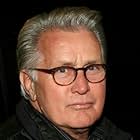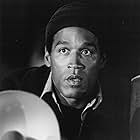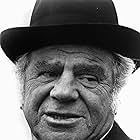Passengers on a European train have been exposed to a deadly disease. Nobody will let them off the train. So what happens next?Passengers on a European train have been exposed to a deadly disease. Nobody will let them off the train. So what happens next?Passengers on a European train have been exposed to a deadly disease. Nobody will let them off the train. So what happens next?
- Awards
- 1 nomination
Thomas Hunter
- Captain Scott
- (as Tom Hunter)
Storyline
Did you know
- TriviaAccording to the book "Sophia Loren: A Biography," Ava Gardner gave Loren the following advice during production: "Always shoot your close-ups first thing in the morning, honey, 'cause your looks ain't gonna hold out all day."
- GoofsWhile the crew attempts to lower things onto the moving train with a helicopter, it conveniently changes from overhead-powered electric to diesel. Immediately afterwards, it changes back.
- Quotes
Susan: [Very ill] I don't look too good, hunh?
Herman Kaplan: Ah, Liebchen, even now you make me wish I was fifty again!
- Crazy creditsOpening credits prologue: INTERNATIONAL HEALTH ORGANIZATION Geneva
- Alternate versionsSPOILER: The 1980s American video version deletes all the carnage during the final sequence, when half of the train goes onto the bridge, which collapses under it. This version shows the train itself, crashing to the ground, but removes the interior shots of passengers being killed, as well as shots of bodies floating in the river in the aftermath, giving the impression that the front half of the train was empty when it fell. This version also deletes the scene with the song "I'm Still On My Way", sung by the hippies, various instances of cursing and other assorted shots which got the film its R rating in 1976.
Featured review
The '70s cycle of disaster films provided widely acclaimed titles such as The Poseidon Adventure and The Towering Inferno, and universally panned titles like When Time Ran Out and Hurricane. It's tricky to decide which side to place The Cassandra Crossing. This 1976 entry in the genre divides critics and the public like no other disaster movie - on the one hand you have Maltin giving it his nod of approval, while on the other you have Halliwell dismissing it as a totally undistinguished potboiler. Personally, I feel The Cassandra Crossing has been rather hard done by. It's a good, well-made, sporadically exciting film with a first-rate cast.
A terrorist on the run boards a continental train, unaware that when he recently infiltrated a top secret laboratory he was infected with a highly contagious killer plague. Pretty soon, people aboard the train are coming down with the horrendous virus. In the corridors of power, Colonel Stephen Mackenzie (Burt Lancaster) plots to divert the train to an abandoned concentration camp where the passengers can be quarantined, ignoring the fact that the train will have to traverse the famously fragile Cassandra Crossing (a dangerously rickety, long unused bridge) to get there. Meanwhile, the passengers - including Dr. Jonathan Chamberlain (Richard Harris) - realize that they're not as safe as the authorities would have them believe, and they try to regain control of the express.
Admittedly, The Cassandra Crossing is derivative and clichéd - as, indeed, so many disaster films are. But it doesn't waste its marvelous all-star cast. Each character is well-written and well-performed by a stellar cast. George Pan Cosmatos (later to helm Cobra and Rambo: First Blood, Part II) directs with an assured touch and generates some very effective tension, particularly in the film's memorable climax. At 123 minutes, the film is just long enough - there's time to get involved in the story and the characters, but not quite enough time to get bored. The Cassandra Crossing is an above-par disaster flick, which has been unfairly under-rated for far too long.
A terrorist on the run boards a continental train, unaware that when he recently infiltrated a top secret laboratory he was infected with a highly contagious killer plague. Pretty soon, people aboard the train are coming down with the horrendous virus. In the corridors of power, Colonel Stephen Mackenzie (Burt Lancaster) plots to divert the train to an abandoned concentration camp where the passengers can be quarantined, ignoring the fact that the train will have to traverse the famously fragile Cassandra Crossing (a dangerously rickety, long unused bridge) to get there. Meanwhile, the passengers - including Dr. Jonathan Chamberlain (Richard Harris) - realize that they're not as safe as the authorities would have them believe, and they try to regain control of the express.
Admittedly, The Cassandra Crossing is derivative and clichéd - as, indeed, so many disaster films are. But it doesn't waste its marvelous all-star cast. Each character is well-written and well-performed by a stellar cast. George Pan Cosmatos (later to helm Cobra and Rambo: First Blood, Part II) directs with an assured touch and generates some very effective tension, particularly in the film's memorable climax. At 123 minutes, the film is just long enough - there's time to get involved in the story and the characters, but not quite enough time to get bored. The Cassandra Crossing is an above-par disaster flick, which has been unfairly under-rated for far too long.
- barnabyrudge
- Sep 7, 2004
- Permalink
- How long is The Cassandra Crossing?Powered by Alexa
Details
- Release date
- Countries of origin
- Languages
- Also known as
- The Planet of Horrors
- Filming locations
- Basel, Kanton Basel Stadt, Switzerland(train station)
- Production companies
- See more company credits at IMDbPro
Box office
- Budget
- $6,000,000 (estimated)
Contribute to this page
Suggest an edit or add missing content

Top Gap
By what name was The Cassandra Crossing (1976) officially released in India in English?
Answer
























